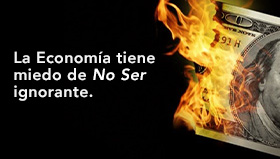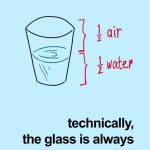Dear readers,
Today –and since forever– exists a strong land expropriation reality in our planet. Companies that find easy ways of installing their means of production in underdeveloped countries who let them unleash their destruction free of taxes. Underdeveloped countries who lower their pants with their hands against the wall and give up nature for them to put their waste.
The examples go way back in history, but we can mention from the dehumanizing mining exploitation in Potosí 200 years ago, to more fashionable examples of nowadays businesses who arrive into credulous towns selling themselves as portrayers of prosperity, new jobs and benefits for the inhabitants of such valuable land, just to take it from them, squeeze it, kill it, and end with a quiet happy retreat.
The huge Botnia paper mill came here because the law there prohibited such outrage to nature. How do you dare to contaminate our natural ecosystem? – They said – Oh, Not at all! Go and install it in Latin America; down there, for a couple of bucks, they let you do anything…
Our politicians… with their pockets full.
“February 13rd. The danger of playing
In 2008, Miguel López Rocha, was jumping happily on the outskirts of the Mexican city of Guadalajara, when he slipped and fell inside the Santiago river.
Miguel was 8 years old.
He did not drown.
He was poisoned
The river contained arsenic, sulfuric acid, mercury, chromium, lead and furans, thrown to the waters by Aventis, Bayer, Nestlé, IBM, DuPont, Xerox, United Plastics, Celanese and other companies, which have their activities prohibited in their own countries.”
Eduardo Galeano. Los hijos de los días (The sons of the days). Siglo Veintiuno Editores, 2012. Buenos Aires. Page 61.
A legal framework that protects the evicted families whose native lands are taken from them does not exist. It seems that complicity between the judicial system and the big corporations is at work, which is why an objective delivery of justice does not exist. Justice is ultimately conditioned by economic interests, allowing the existence of economic bonds between governments and the corporations willing to join the party with rum, ice and confetti.
And US ALL are the credulous. Because we do not manage to see the difference between the “content” and the “sense” of social actions which are imprinted in us by the system. We, as individuals, give sense to the content of an action, which turns to be social if it is oriented towards another person. (Concepts extracted from Max Weber – he was a key proponent of methodological antipositivism, presenting sociology as a non-empiricist field which must study social action through interpretive means based upon understanding the meanings and purposes that individuals attach to their own actions)
So, the content of the system’s social actions is simply installing means of production which degrade our environment in exchange of money. The problem arises when we give a sense of economic prosperity to those actions. We do it either by letting ourselves be hypnotized by publicity, by attaching our ego to a car or by who makes more noise with a motorcycle, or by admiring –or worse, envying– the occidental way of living, of having everything at your disposal, fast, not minding from where the comforts of modern life came from, nor who put his life working all day long for us to enjoy.
The true sense of our system is social domination; we are interpreting it wrong… And one can ask himself what our politicians are doing for our dreams. How can they not pursue our interests?
And the answer came to me through Annie Leonard’s excellent work, known by many already, “The Story of Stuff”, where the productive cycle is explained, and more importantly, it makes clear evidence that macroeconomics has reached a point where large companies have more money than the governments themselves… When a few businessmen got the stash, and not the people, our interests do not mind at all, and the democratic system transforms itself into theatre.
Eduardo Galeano, with his impressive way of seeing the world, tells it this way:
“March 27 th. The Day of the Theatre.
In 2010, Murray Hill Inc. demanded the politicians quitted simulating they were governing us.
Before this, the U.S. Supreme Court declared that those companies that finance the politicians’ electoral campaigns are not breaking the law; and longer ago, the bribes that legislators receive through the lobbies were already legal.
Applying common sense, Murray Hill Inc. announced that he would present his candidateship for U.S. Congress, representing the state of Maryland. It was time to dispense with the intermediaries:
It is our democracy. We buy it. We pay for it. Why not present ourselves to the ballot? Vote for us, to have the best democracy money can buy.
A lot of people thought it was a joke. Was it?”
Eduardo Galeano. Los hijos de los días (The sons of the days). Siglo Veintiuno Editores, 2012. Buenos Aires. Page 107.
Huge hug,
Brian Longstaff.-
PS.: One last piece of information struck my head just before uplading these lines. The environmental liability of the ex YPF (Argentina’s biggest oil company, which was owned by Repsol until this year), this is, the money needed to pay the environment for all the damage caused to the environment in the last decade surpasses the U$S 10.500 million which the Spanish asked in condition to leave the country. After the nationalization, all of this was left to the wind, and so did the environmental regeneration action plan supposed to begin in April this year. It is a pity that such a big national decision does not give a fuck about nature. Indignation, to the asylum.





















Diego Garavaglia Jun 19 , 2012 at 12:07 AM /
excelente nota!! tirando magia por todos lados jaja muy buena!!!
Diego Garavaglia Jun 19 , 2012 at 12:08 AM /
esta parte es GENIAL, tal cual!! La justicia esta condicionada por intereses económicos, permitiendo la existencia de lazos económicos entre los mismos gobiernos y las empresas dispuestas a caer en la fiesta con ron, hielo y cotillón.